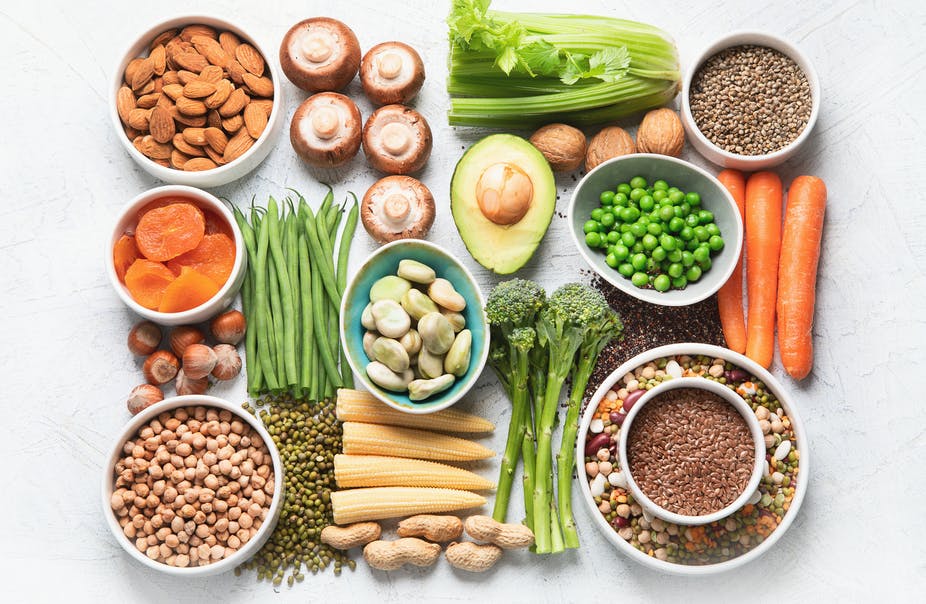
What to know about vegan diet?
A vegan diet involves eating only foods comprising plants. Those who follow this diet avoid all animal products, including meat, dairy, and eggs. Some people also avoid eating honey. For some, being vegan is a dietary choice, while for others, it is a lifestyle choice.
People who choose to live a vegan lifestyle may also avoid clothes, soaps, and other products that use or contain parts of animals, such as leather and animal fur. Some adopt this lifestyle for its environmental benefits as a sustainable diet.
Vegan diets tend to include plenty of fruits, vegetables, beans, nuts, and seeds. Eating a variety of these foods will provide a wide range of important vitamins, minerals, healthful fats, and protein.
People following this vegan diet should, however, take care to get key nutrients that people usually consume in animal products. These nutrients include iron, protein, calcium, vitamin B-12, and vitamin D.
Vegan vs. Vegetarian
The main difference between vegetarians and vegans is that although vegetarians do not eat meat (including cows, pigs, chicken, and fish), they consume dairy products, eggs, or both. The vegan diet excludes all products with animal-based ingredients.
The vegan diet is more restrictive, so people will need to think more about where their nutrients are coming from to ensure that they meet their daily dietary requirements.
Read more about vegan vs. vegetarian diets here.
Benefits
Vegan diets can provide all of the nutrients that a person needs, and they can eliminate some of the possible risks that research has associated with harmful animal fats. Research has linked the vegan diet with a range of health benefits, including those below.
Better Heart Health
Vegan diets can boost heart health in several ways.
A large scale 2019 study Trusted Source has linked a higher intake of plant-based foods and lower intake of animal foods with a reduced risk of heart disease and death in adults.
Animal products — including meat, cheese, and butter — are the main dietary sources of saturated fats. According to the American Heart Association (AHA)Trusted Source, eating foods that contain these fats raises cholesterol levels. High levels of cholesterol increase the risk of heart disease and stroke.
Plant foods are also high in fiber, which the AHATrusted Source link with better heart health. Animal products contain very little or no fiber, while plant-based vegetables and grains are the best sources.
In addition, people on a vegan diet often take in fewer calories than those on a standard Western diet. A moderate calorie intake can lead to a lower body mass index (BMI) and a reduced risk of obesity, a major risk factor for heart disease.
Lower Cancer Risk
According to a 2017 review, eating a vegan diet may reduce a person’s risk of cancer by 15%. This health benefit may be due to the fact that plant foods are high in fiber, vitamins, and phytochemicals — biologically active compounds in plants — that protect against cancers.
Research into the effects of diet on the risk of specific cancers has produced mixed results.
However, the International Agency for Research on Cancer report that red meat is “probably carcinogenic,” noting that research has linked it primarily to colorectal cancer but also to prostate cancer and pancreatic cancer.
The agency also report that processed meat is carcinogenic and may cause colorectal cancer.
Eliminating red and processed meats from the diet removes these possible risks.
Weight Loss
People on a vegan diet tend to have a lower body mass index (BMI) than those following other diets.
The researchers behind a 2015 study reported that vegan diets were more effective for weight loss than omnivorous, semi-vegetarian, and pesco-vegetarian diets, as well as being better for providing macronutrients.
Many animal foods are high in fat and calories, so replacing these with low calorie plant-based foods can help people manage their weight.
It is important to note, though, that eating lots of processed or high fat plant-based foods — which some people refer to as a junk food vegan diet — can lead to unhealthful weight gain.
Read more about the vegan diet and weight loss here.
Lower Risk Of Type 2 Diabetes
According to a large 2019 review Trusted Source, following a plant-based diet can reduce the risk of type 2 diabetes. The research linked this effect with eating healthful plant-based foods, including fruits, vegetables, whole grains, nuts, and legumes.
For more science-backed resources on nutrition, visit our dedicated hub.
Nutrients To Consider On A Vegan Diet
A vegan diet removes some sources of nutrients from the diet, so people need to plan their meals carefully to avoid nutritional deficiencies. People may wish to talk to a doctor or dietitian ahead of adopting a vegan diet, especially if they have existing health conditions.
Key nutrients that may be low in a vegan diet include:
Vitamin B-12: Vitamin B-12 is mainly present in animal products. It protects the nerves and red blood cells. Plant-based sources of this vitamin include fortified cereals and plant milks, nutritional yeast, and yeast spreads. Read more about vegan sources of vitamin B-12.
Iron: Iron is important for blood health. Beans and dark leafy greens are good sources. Find out more about iron-rich vegan foods.
Calcium: Calcium is crucial for bone health. Eating tofu, tahini, and leafy greens will help keep calcium levels up. Learn about calcium-rich plant-based foods.
Vitamin D: Vitamin D protects against cancer and some chronic health conditions, and it helps strengthen the bones and teeth. Regularly eating vitamin D-fortified foods and spending time in the sun can boost vitamin D levels.
Omega-3 fatty acids: Important for heart, eye, and brain function, there are three types of omega-3 fatty acid: EPA, DHA, and ALA. Walnuts and flaxseeds are good sources of ALA, but seaweeds and algae are the only plant sources of EPA and DHA. Read about how to get omega-3 as a vegan.
Zinc: Zinc is important for the immune system and the repair of DNA damage. Beans, nutritional yeast, nuts, and oats are high in zinc. Read about zinc-rich vegan foods.
Iodine: Iodine is important for thyroid function. Plant-based sources include seaweeds and fortified foods.
A person may wish to ask for their doctor’s advice on whether to take supplements or consume more fortified foods.






